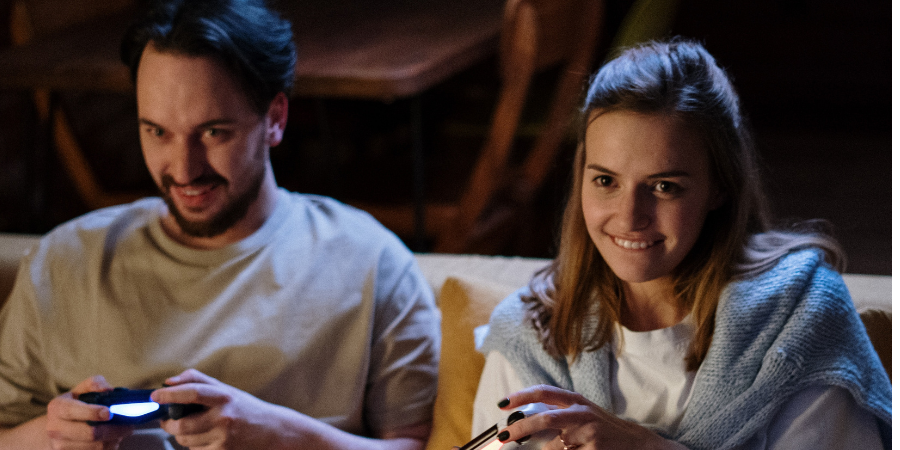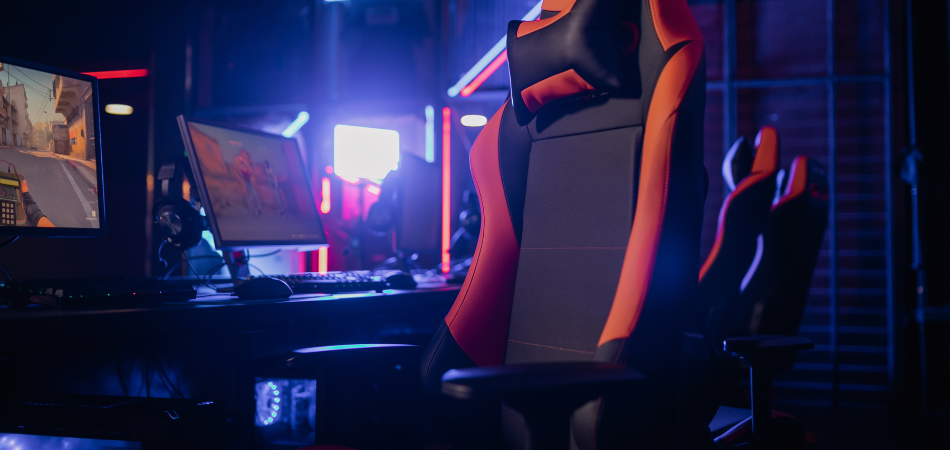
Written by:

Medically Reviewed by:
Last Updated:
March 5th, 2025
Gaming Addiction | Definition, Symptoms and Effects
- Select
- Gaming addiction
- Gaming rehab
With between 700,000 and 1 million UK gamers struggling with dependency, could you be suffering from gaming addiction without realising?
Since the early 2000s, gaming has fast become the latest trend, constantly undergoing evolutions that result in newer, more extravagant devices and programmes. If you are a big fan of video games, you are not the only one, and it has been recorded that as many as two billion people play them worldwide, with this number set to surpass three billion by 2023.
While a frequent number of people associate addiction with behaviours such as drinking too much or drug abuse, we can become addicted to almost anything. In fact, neuroimaging studies have indicated that internet gaming addiction shares similarities with substance dependence. Below, we will explore some truths about gaming addiction and what it signifies, investigating public misconceptions, signs, and symptoms in determining whether ourselves or a loved one might be addicted to gaming.
“It’s just a game. I’m not hurting anyone.”
What is gaming addiction?
Gaming addiction is a need to play video games, either on or offline, to such an extent that it has negative effects on our lives. This compulsion, much like any other, is a medical condition that develops in the brain.
When we engage in activities that make us happy, such as exercising or spending time with friends, a surge of dopamine is released, and this sensation encourages us to carry out the same behaviour again. While maintaining stable dopamine levels in the brain is good for keeping us motivated and regulating our bodies, too much of it can result in poor impulse control and will throw us into overdrive.
The pleasure of gaming is direct and comes as a result of the reward. For example, completing a task that we have spent hours trying to finish creates an immediate rush of satisfaction and a sense of achievement. That excess of dopamine experienced when playing games creates a sensation of happiness and wellbeing; however, this leads to a deficiency when we are unable to play, drastically lowering mood and, over the long term, leading to sadness and despair.
Much like any other addiction, gaming addiction involves neglect of our own personal welfare in the pursuit of our compulsion. For example, in 2021, around 30% of UK gamers admitted they sometimes skipped a shower to play video games during the national lockdown. While we may not think it, gaming addiction has the power to prevent us from activities that are essential for our health and wellbeing.
How are video games addictive?
You might be asking how it is possible to become addicted to video games. There are several factors that contribute to the ever-growing appeal of gaming:
Video games are incredibly immersive
Gaming offers us opportunities to access realities that would never be possible in the real world, which is why they have the potential to be so destructive. From entering mythical realms soaked in adventure to dangerous spaces packed with violence and bloodshed, we can now act out elements of our identities that we had never thought possible. With an entirely new reality to explore, you may notice that you have started to neglect yourself in the process, eventually losing all interest in activities existing outside of the game. This detachment from reality is one reason why gaming has the potential to be so addictive.
We can develop meaningful friendships
Gaming offers a space for relationships, and we can now meet others in protected, online settings that guarantee our safety and anonymity. There is also a cultural lens present in gaming, introducing the player into a community with other people who share the same beliefs and practices. In much the same way, if certain individuals have a difficult time in social settings, gaming can offer them a suitable outlet to express themselves without fear or judgement, furthering its potential to turn from a hobby into a full-blown addiction.
There is a huge time commitment involved
With activities like multiplayer online role-playing games (MMORPGs), there is a level of dedication which is essential to continued progress. A journey which is literally never-ending, players are lured back into this reality with every play, and there is a sense of obligation to teammates to keep playing and advancing. This compulsion to turn away from the real world and instead focus all energy on the gaming experience is another example of how they can become so addictive.
Signs of video game addiction
While each person is unique, and what may represent problem gaming in one person may be unproblematic in another, if you are experiencing any of the following, you might be suffering from an addiction to gaming:
- I go for long periods of time without sleeping, choosing instead to game.
- I find it difficult to communicate with others outside of a gaming context.
- I’m losing interest in activities I once enjoyed.
- I am starting to become afraid to go outside because of my frequent time spent indoors playing video games.
- I make sure I stay isolated to guarantee uninterrupted play.
- I’m lying to myself and others about how much time I spend gaming.
- I cannot feel content until I have completed a given section of a game or in-game activity.
Help a loved one overcome gaming addiction
Unfortunately, people can often throw the term ‘addictive’ around, unaware of its severity and the harmful consequences that can follow as a result of the addiction. We might think that games couldn’t possibly have this potential. This is far from the truth, however, and it is very important that we relay to our loved ones that their addiction is serious and there is help available.
Young people are particularly susceptible to gaming addiction, which is why it is essential to keep an eye on those in our homes that might be showing signs of this affliction.
At Primrose Lodge, we strive to provide our clients with the best facilities and gaming addiction treatment programmes to overcome their addictions.
We wish to assure you that recovery is possible, and if you feel that you might be suffering from gaming addiction, you should not hesitate to seek the support you deserve to overcome this affliction.






